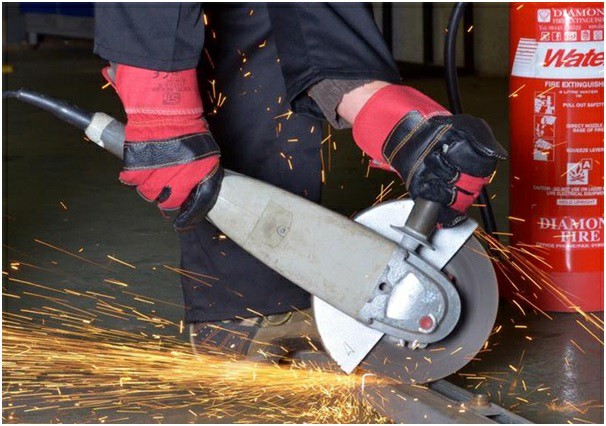Essential Safety Measures for Abrasive Wheels: Training Insights to Prevent Accidents
Abrasive wheels are widely used in industries for cutting, grinding, and polishing various materials. While they are invaluable in enhancing productivity, improper handling can lead to severe accidents. In this blog, we will discuss the key safety risks associated with abrasive wheels and how proper training plays a pivotal role in preventing these incidents.
Understanding Abrasive Wheels and Associated Risks
Abrasive wheels can be dangerous if not handled correctly. Here are the primary safety risks associated with their use:
- Wheel Breakage: Abrasive wheels can shatter under strain or misuse, leading to fragments flying at high speeds.
- Injuries from Improper Mounting: If not mounted properly, wheels can become unstable, causing accidents.
- Dust and Particles Exposure: Grinding operations often generate harmful dust, leading to respiratory issues if proper protection isn't used.
- Electrical Risks: Using damaged equipment can lead to electrical shocks or fires.
- Lack of Personal Protective Equipment (PPE): Inadequate use of PPE exposes operators to increased injury risks.
The Importance of Abrasive Wheels Training
Effective training is essential for all personnel who handle abrasive wheels. Here’s how adequate training can mitigate risks:
- Hazard Identification: Training helps workers recognize potential hazards associated with abrasive wheels.
- Proper Equipment Usage: Trained employees learn the correct methods for handling, mounting, and operating abrasive wheels.
- Use of PPE: Training emphasizes the importance of using protective equipment, such as goggles, gloves, and dust masks.
- Emergency Response: Workers become familiar with basic emergency procedures to follow in the event of an accident.
Real-Life Case Studies: Prevention Through Training
Implementing effective abrasive wheels training can significantly reduce the risk of accidents. Consider these real-life examples:
- Case Study 1: At a Dublin manufacturing facility, an employee was trained in the proper mounting of an abrasive wheel. Shortly after training, a fellow worker observed improper techniques being used by another operator. Thanks to prompt acknowledgment of the safety protocols learned in training, he intervened, preventing potential injury from a wheel breakage incident.
- Case Study 2: In Cork, a company implemented a certified abrasive wheels training program. One employee, previously unaware of the dangers of improper PPE use, suffered a minor injury when a splinter hit their arm while using an unguarded grinder. After additional training and gear implementation, similar incidents were drastically reduced.
Best Practices for Safe Use of Abrasive Wheels
In addition to training, here are some best practices to incorporate into your workplace safety culture:
- Conduct Regular Risk Assessments: Regular evaluations can help identify potential hazards and ensure compliance with safety standards.
- Schedule Routine Safety Inspections: Regular checks of abrasive wheel equipment can prevent malfunction due to wear and tear.
- Implement Clear Operating Procedures: Develop and distribute clear safety guidelines that all employees must follow.
- Encourage Reporting: Foster an environment where workers can report unsafe conditions or near misses without fear of repercussion.
Conclusion: Investing in Safety is Investing in Your Workforce
Using abrasive wheels safely is crucial for maintaining a secure workplace environment. Proper training, such as enrolling in Abrasive Wheels Course, is a fundamental step in preventing workplace accidents. Remember, your workforce is your most valuable asset; ensuring their safety is an investment worth making.
If you're located in Dublin, Cork, or Galway and looking to enhance workplace safety, consider participating in our Abrasive Wheels Safety Course or attending our Abrasive Wheels Certification Dublin. For inquiries, contact us at [email protected]. Let's make your workplace safer together!



 349,500 Offered Certificates
349,500 Offered Certificates
 24/7 Online Training
24/7 Online Training
 Money Back Guarantee
Money Back Guarantee
 Fully Accredited Courses
Fully Accredited Courses
